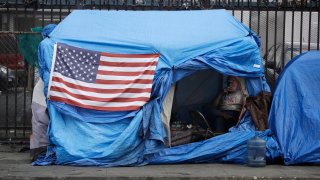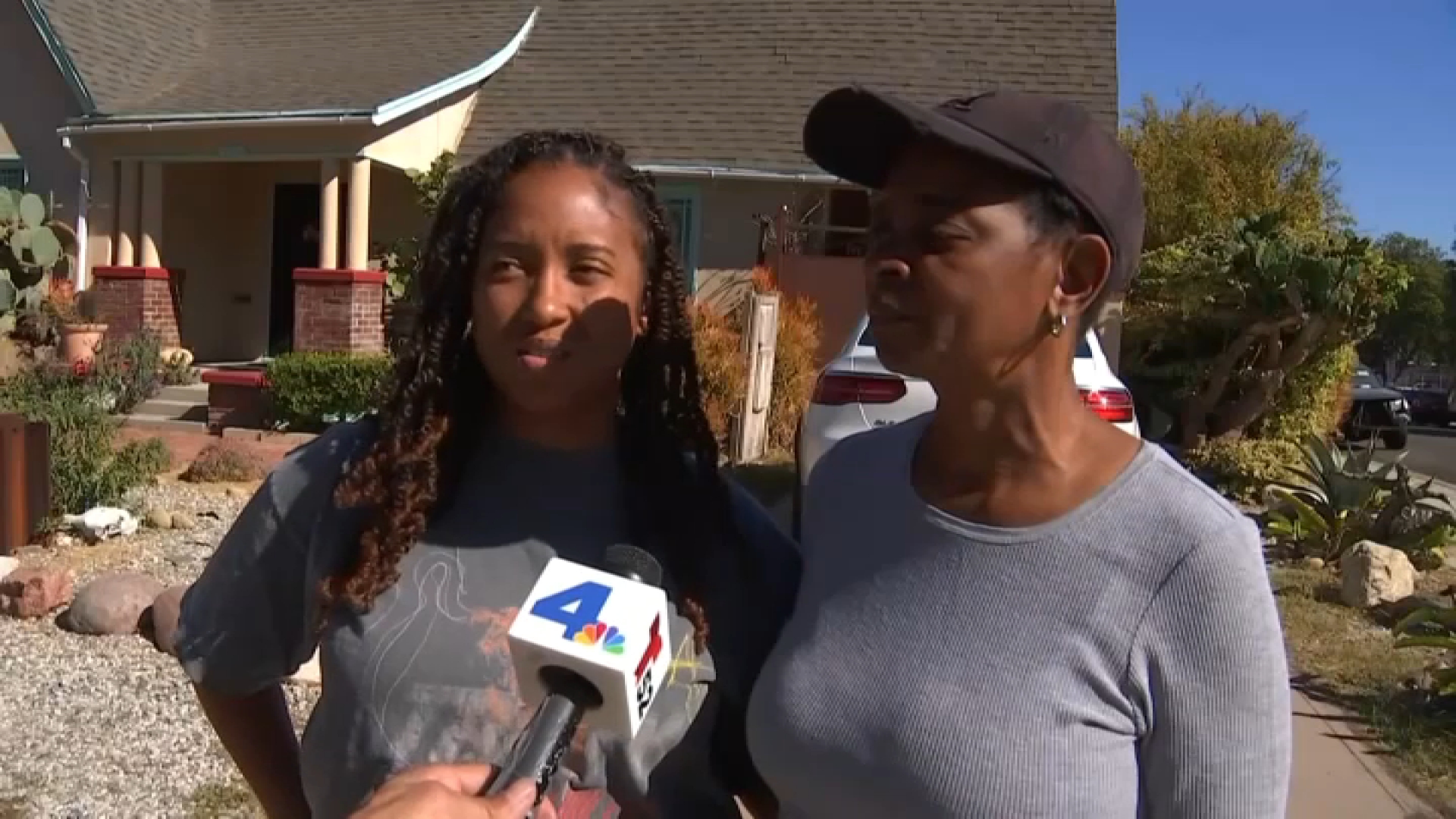
Los Angeles County leaders announced Monday a lawsuit settlement agreement that commits hundreds of millions of dollars to expand outreach and supportive services for homeless residents, marking the potential end of two years of litigation over the crisis of people living on the streets.
The deal puts LA County, operator of the local public health system, in direct partnership with the city of Los Angeles, which has committed to sheltering thousands of homeless residents as part of its settlement in the lawsuit reached earlier this year.
The suit was brought in 2020 by the LA Alliance for Human Rights, a coalition that includes businesses, residents, landlords, homeless people and others who allege that inaction by the city and county has created a dangerous environment.
The homeless population was once largely confined to downtown LA’s notorious Skid Row, but encampments have spread widely, including within sight of City Hall and the Hall of Administration, where the Los Angeles County Board of Supervisors meets.
Get top local stories in Southern California delivered to you every morning. Sign up for NBC LA's News Headlines newsletter.
Supervisor Holly Mitchell said the county will commit an estimated $236 million in new funding to address homelessness through 2027, with an emphasis on expanding street outreach teams to make sure people who need help get it. That's on top of more than $530 million in homelessness funding created by a sales tax approved by voters in 2017.
Mitchell said the new money will also go toward a “comprehensive suite of services” for eligible residents of the 10,200 permanent housing units and 3,100 interim shelter beds that the city of LA has committed to build under its agreement. Services will include case management, medical and mental health support, benefits advocacy, family reunification, childcare and addiction treatment.
“I cannot underscore enough how this adds to our toolkit for stemming the tidal wave of people who are experiencing homelessness,” Mitchell said at a news conference with city and county officials.
Local
Get Los Angeles's latest local news on crime, entertainment, weather, schools, COVID, cost of living and more. Here's your go-to source for today's LA news.
Matthew Umhofer, attorney for the alliance, said the “monumental” settlement seals the deal with the city by ensuring county support.
“But most importantly, this deal provides something that has been desperately missing on this issue for decades: real accountability in the form of supervision over the next five years by a federal judge,” he said. The county’s agreement requires the approval of U.S. District Judge David O. Carter, who is overseeing the case and will supervise the settlement’s implementation through 2027.
Los Angeles Mayor Eric Garcetti conceded there's been a collective failure of properly addressing the crisis at a local level. He said the new partnership is a step toward “putting a game plan on paper for how we can continue to march towards our ultimate goal of eliminating homelessness."
The city has said it will spend around $3 billion over five years to construct the new housing units. But the exact commitment will be based on the results of the 2022 point-in-time count of homeless people that was released last week. As of February, there were more than 69,100 homeless people in Los Angeles County, with about 42,000 within LA city limits.
Last year, Carter issued an order that would have required the city and county to offer shelter to all unhoused people on Skid Row within six months.
An appeals court struck down the order on grounds that the plaintiffs lacked standing to bring most claims. The alliance then filed an amended lawsuit.
Under the city’s agreement, announced in April and approved by the judge in June, Los Angeles will create shelter or housing for 60% of homeless people in the city who do not have a serious mental illness, substance abuse disorder or chronic physical illness.
The city, which does not have its own health department, had contended the county is obligated to provide services and housing for people with those problems but was failing.



